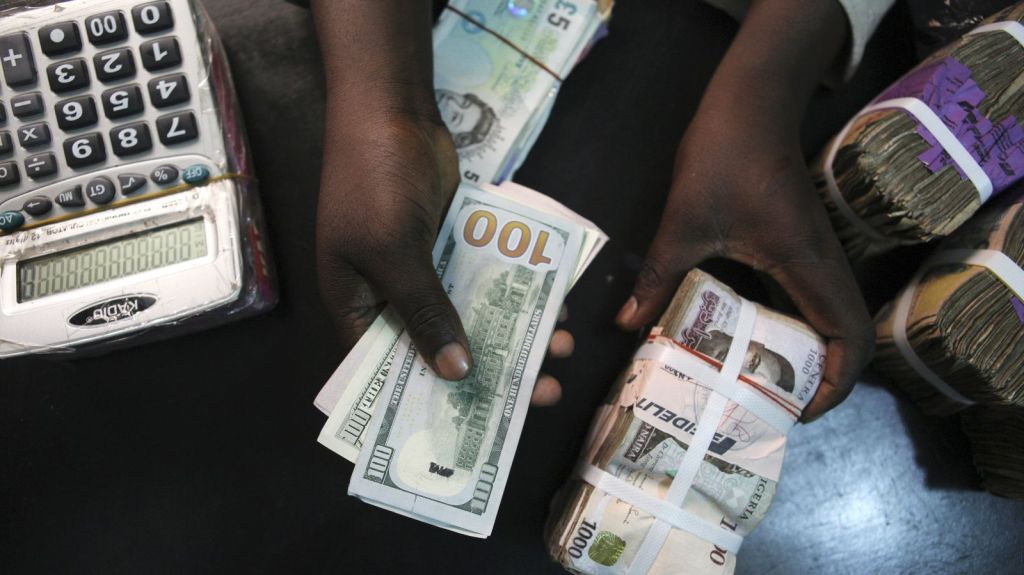Bank customers have expressed frustration over their inability to withdraw dollars from their domiciliary accounts amid worsened foreign exchange crisis which has hit Nigerian financial sector.
The Central Bank of Nigeria (CBN) lifted a ban stopping commercial banks from accepting cash deposits of foreign exchange from customers on January 11.
But the lifting of the ban has not solved the scarcity of the currency which has hit Nigerian banks amid falling oil prices.
The naira currently exchanges at about N300 at the parallel market and trades at about N200 at the official interbank window.
Some banks customers have narrated the difficulty they have faced in withdrawing dollars from banks.
Clementina Silas, a Lagos based medical doctor told the Punch that she had been unable to withdraw the amount she needed from her domiciliary account for over 10 days.
She said, “I have wanted to withdraw $1,300 for the past 10 days but I have not been able to do so.
Officials of her bank told her to try several of their branches to check if they could come up with the $1,300 she wanted to withdraw.
She said she could only get an aggregate of $400 after requesting for the said amount at four branches of the bank.
“First, I went to a branch of my bank at Idimu, Lagos, but I was told that I could only get $100. Then I went to other branches at Akowonjo and Ikeja but couldn’t get any there. I was told that there was scarcity of dollars.
“I got lucky at a branch at Adeniyi Jones Avenue, where I was able to get $200. The lady said I should come back the next day and I might be lucky to get more dollars. When I got back there, I could only get $100 but one of the officials at the branch said she had to keep it for me because she had promised me that she would try to get more for me.
“It is very annoying because it is my money we are talking about. I don’t understand why it is difficult for me to get my money when I need it.”
In the same vein, Alhaja Aminat Musa, a businesswoman in Abeokuta, Ogun state complained that one cannot get dollars anywhere because the banks are not releasing dollars to customers.
She said: “I was planning to travel recently to Ghana, but I couldn’t go. What I normally do is to collect dollars from my account here and exchange it with the local currency in Ghana, Benin Republic or any other country I am buying goods from.
“But I cannot get dollars anywhere and so I could not travel out to buy goods. So I will wait till the issue is resolved and dollar rate comes down before I buy more goods. Even if I buy anything now, it will be too expensive and I may not make enough profit from
A bank executive who spoke under the condition of anonymity also expressed the difficulty faced in sourcing for dollars. He said he had been sourcing for $1,000 for a customer since the CBN lifted the ban on forex transfer without success.
He said: “Since the ban was lifted, people have not been coming to deposit dollars so there is nothing to give out to those who want to make withdrawals,” the source said.
“I asked a customer who wanted to withdraw $1,000 to wait for us to source for funds but I have not been able to get the money since.
“I have informed our Cash Management Unit but there has been no feedback yet. It is a very serious issue but the depressing part is that we don’t know how long this will continue.”
Meanwhile, the Financial Times UK has described the economic policies of the President Muhammadu Buhari administration as the ‘height of foolishness’.
The leading international business publication in an article by Steve Johnson, the deputy editor of the Financial Times, said the economic policies of the Buhari administration is doomed to fail because it is tailored after Venezuela’s exchange rate policy and China’s failed equity market strategy.

